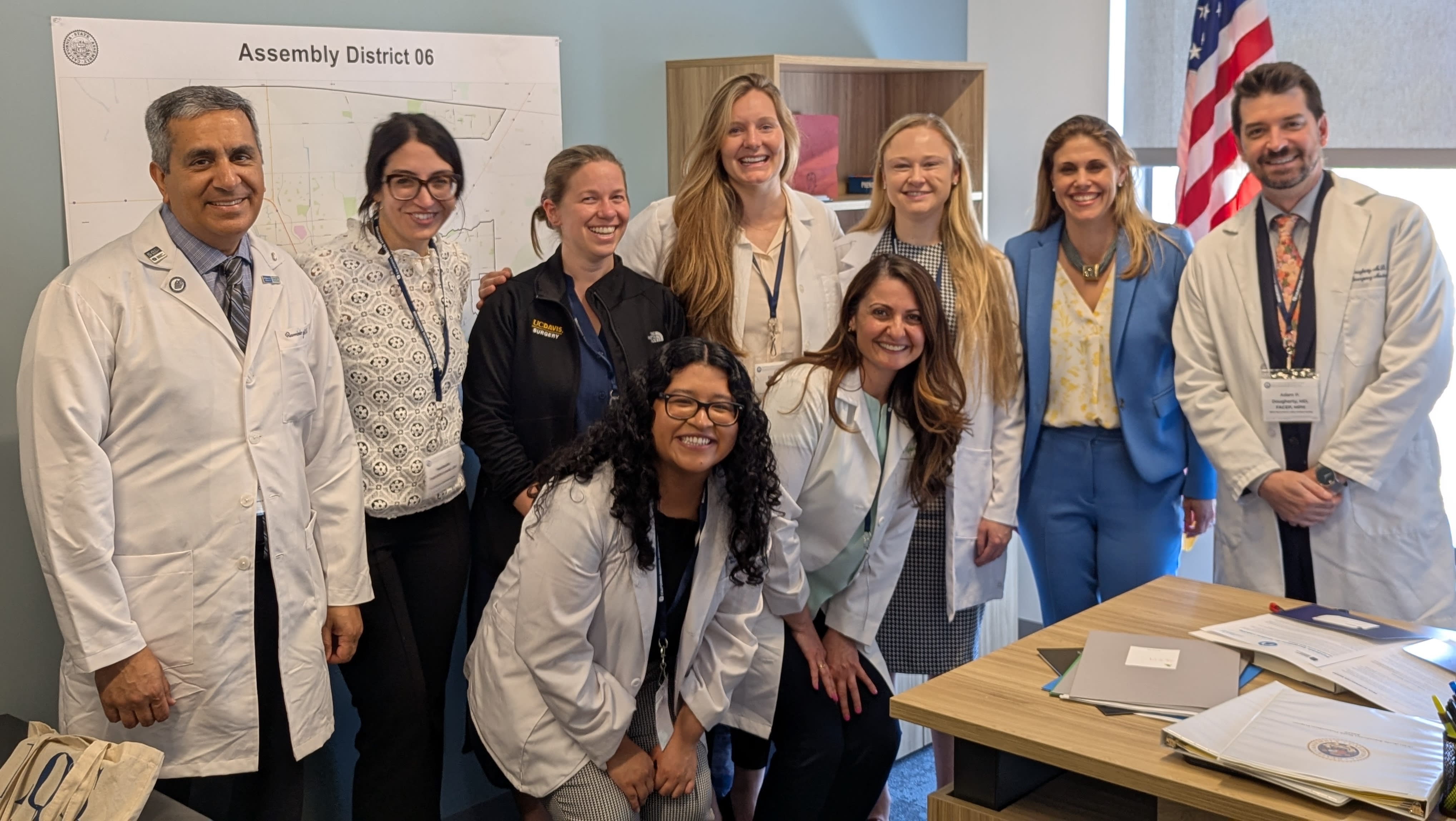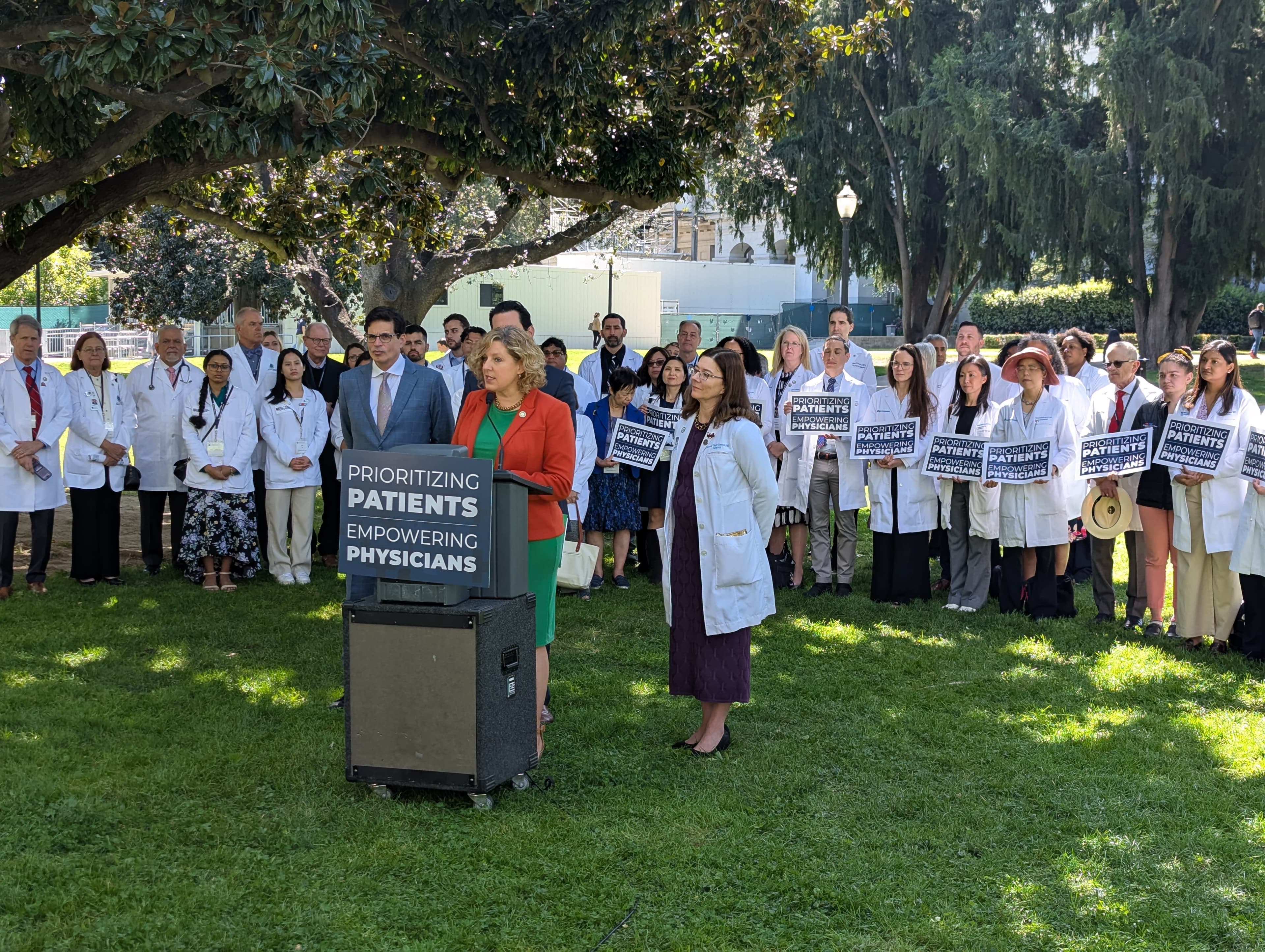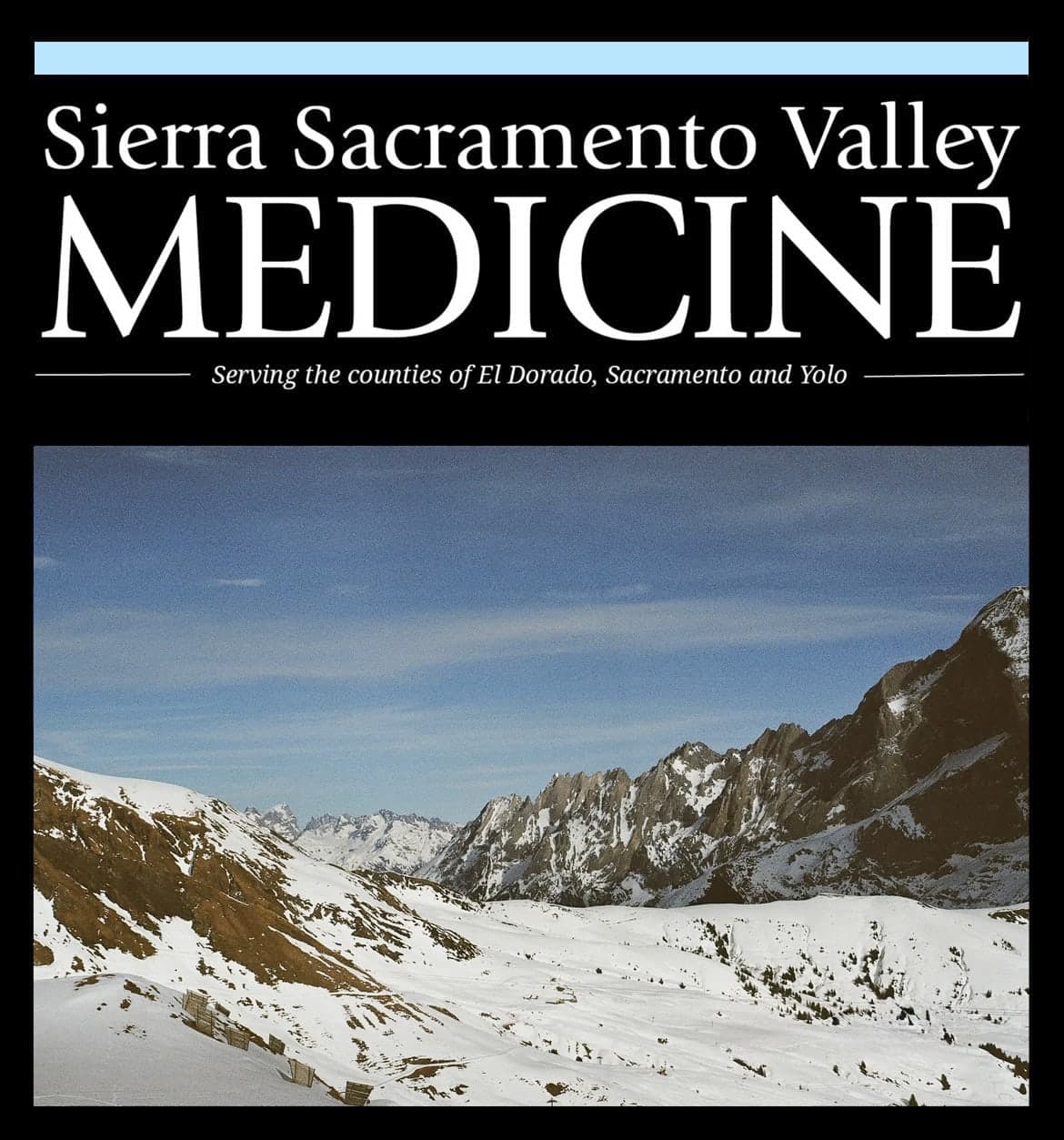
Every year in Sacramento, health policy feels faster, more complex, and more consequential than the last; 2025 was no exception. From budget shortfalls to the continuing ripple effects of federal policy shifts, SSVMS and CMA stayed focused on one constant goal: protecting physicians’ ability to care for patients.
This year, our state advocacy centered on four areas that cut across every specialty: prior authorization reform, liability protections, private equity oversight, and the responsible use of artificial intelligence in health care. I’m proud to share that 2025 marked one of our most successful years in recent memory, with meaningful legislative victories that will make a real difference in both how we practice and how our patients experience care.
Few issues generate as much daily frustration, and harm to patients, as prior authorization. After years of stalled progress, a multi-bill reform package finally broke through, moving California toward a more efficient and transparent system.
The centerpiece of this success was Senate Bill 306 (Becker), a CMA-sponsored bill now signed into law. SB 306 gives the Department of Managed Health Care (DMHC) the authority to remove prior authorization requirements for services that are routinely approved, and it requires annual reporting from health plans so we can see exactly how prior authorization is being deployed. That data will bring sunlight to a process that’s long operated in the dark and will give regulators the power to act when health plans abuse the system.
While Governor Newsom vetoed Assembly Bill 512 (Harabedian), which would have shortened decision timelines to three business days for standard requests and just 24 hours for urgent ones, the message from the Legislature was unmistakable: patients should not have to wait weeks for medically necessary care.
Two other bills in the package laid important groundwork for 2026: AB 510 (Addis), requiring that denials be reviewed by a physician of the same or similar specialty, and AB 539 (Schiavo), extending approval windows to one year instead of the current 60- to 90-day standard. AB 510 didn’t make it out of the Assembly Appropriations Committee, while AB 539 is a two-year bill currently in the Senate Health Committee. Altogether, these measures represent the most significant progress on prior authorization reform we’ve seen in California in a generation.
Protecting the stability of medical liability law remains one of CMA’s most enduring commitments. This year, we successfully blocked Senate Bill 29 (Laird) not once, but twice.

SB 29 sought to extend pandemic-era legal exceptions that would have made it easier to sue for non-economic damages, including in medical malpractice cases. If enacted, it would have unraveled the careful balance achieved in 2022 through AB 35’s modernization of the Medical Injury Compensation Reform Act (MICRA).
When the bill resurfaced late in the session, CMA’s advocacy team mobilized overnight and contacted every single Assemblymember by the following morning. Thanks to that unified effort, SB 29 was placed on the inactive file on the final day of session. It’s a powerful reminder that when physicians speak with one voice, we can protect both our patients and our profession.
Another major step forward came through Senate Bill 351 (Cabaldon), a CMA-sponsored measure aimed squarely at the growing influence of private equity in health care. The bill codifies the Medical Board of California’s long-standing guidance against corporate interference in clinical decisions and grants the California Attorney General new authority to enforce those rules.
Until now, violations of the corporate practice of medicine were enforceable only through private lawsuits or limited medical board actions. SB 351 changes that, empowering the Attorney General to investigate and take direct action against non-physician entities that infringe upon physicians’ independent judgment. This law sends a clear message: medical decisions belong to doctors and their patients, not corporate investors. It’s a crucial safeguard for the integrity of our profession.
Artificial intelligence continues to reshape our world faster than legislation can keep up. CMA’s approach this year was guided by two simple principles: AI should help physicians, not replace them, and patients must always know who they’re talking to.
That philosophy guided Assembly Bill 489 (Bonta), another CMA-sponsored success signed into law. AB 489 prohibits companies from marketing AI chatbots or similar technologies as licensed medical professionals. While AI can be a powerful tool for triage and patient communication, no algorithm should ever pretend to be a doctor. This law ensures transparency and protects patients from misleading or unsafe digital interactions.
SSVMS and CMA also helped stop AB 1018 (Bauer-Kahan), a sweeping proposal that would have classified nearly every physician in California as a “deployer of AI,” triggering extensive compliance requirements and potential penalties for using even basic clinical software. Thanks to coordinated advocacy, that bill was shelved on the Senate floor, preserving physicians’ ability to adopt new technologies responsibly while legislators work toward a more balanced framework.
Each of these wins reflects what our organizations do best: we stay ahead of emerging issues, collaborate with policymakers, and protect physicians’ ability to deliver safe, ethical, patient-centered care.
This has been a remarkable year not only for legislative progress, but also for the unity it’s taken to achieve it. None of these wins would have been possible without the tireless advocacy of physicians who called, emailed, and testified to ensure our voices were heard.
As I look back on my term as President, I’m filled with gratitude. To my family, who patiently endured long evenings and countless meetings, while providing the unwavering support that is the bedrock of my ongoing leadership in advocacy. To my colleagues and mentors, who continually inspire and remind me why this profession is worth fighting for every day. To my fellow volunteers and board members at SSVMS, whose dedication to service exemplifies what organized medicine can be at its best.
And finally, to the SSVMS staff, the talented, mission-driven team that makes every initiative look effortless, you have my deepest thanks. From coordinating advocacy and community outreach to managing our magazine and events, you make this work possible. Our members are so very fortunate to benefit from your steadfast commitment.
As we move into a new year, I do truly remain optimistic about what lies ahead. Our physicians have proven once again that when we collaborate, stay informed, and speak with purpose, we can drive real, lasting change for our patients and our calling. Daunting challenges remain, yet we must remember to appreciate the many successes we achieved this year, and the team and our unparalleled profession that realized those wins. Most importantly, we must appreciate the common cause and the community that we are all privileged to stand beside every single day. Thank you for being part of that effort and for the honor of serving as your president. Good luck to Roderick Vitangcol, MD for his incoming term as president – I look forward to seeing where we, SSVMS, can go!

adam.dougherty@vituity.com
- Previous
- ← Nov-Dec 2025


